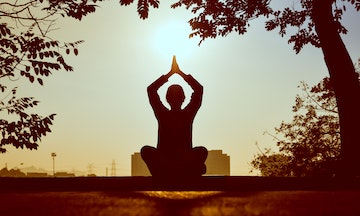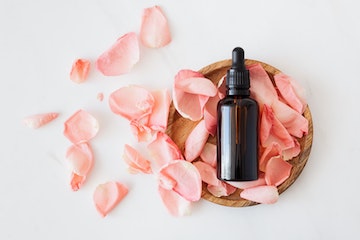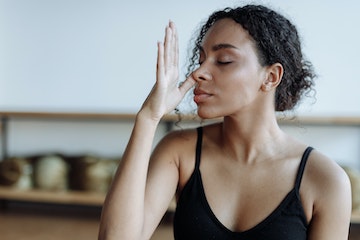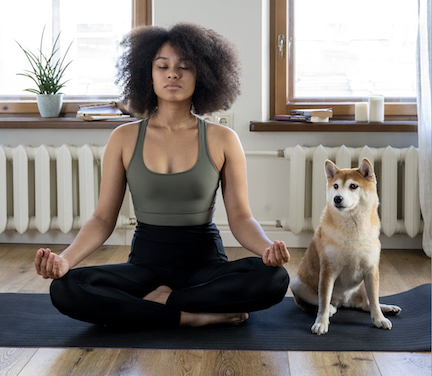Written by Guest Blogger: Preeti Razdan
How a Holistic Practice Can Help Improve Your Life
Holistic practice is a way of working that recognizes the interconnectedness of all things. It means that we can’t consider one aspect of our lives in isolation—we have to see them all together.
A holistic practice takes into account the whole person, including our physical, mental, emotional, and spiritual well-being. It seeks to understand and address all aspects of our life and health, rather than just treating specific symptoms or conditions. Holistic practices often involve a range of modalities, including things like nutrition, exercise, stress management, and spiritual practices, and may also incorporate traditional or alternative therapies. The goal of holistic practice is to help us achieve optimal health and well-being, rather than just addressing individual problems as they arise.
I am going to talk about 10 holistic practices that can help you feel better and more balanced in your life.
10 Holistic Practices for Enhancing Wellness and Happiness

#1 Meditation
Meditation is one of the most prominent and useful practices in holistic health. As we face the daily stresses of life, it can feel like our minds are constantly racing with thoughts that keep us from relaxing and living our best lives, making it hard to focus on what’s important.
Meditation has been shown to have numerous benefits for both physical and mental health. It can reduce stress, improve focus and concentration, lower blood pressure, and decrease symptoms of anxiety and depression. It can also increase feelings of calm, clarity, and well-being. Regular meditation practice can help to cultivate a sense of perspective, allowing us to approach challenges with a sense of balance and acceptance.
Additionally, meditation has been found to improve sleep, boost the immune system, and even increase lifespan. Overall, incorporating meditation into our daily routine can enhance our overall health and happiness by helping us to better manage stress, cultivate a sense of peace and well-being, and lead a more mindful and fulfilling life.

#2 Acupuncture
Acupuncture is a great way to reduce stress, relax your body and mind, and improve your overall well-being. It is believed to stimulate the body’s natural healing abilities and promote physical and emotional well-being.
Acupuncture involves inserting very thin needles into certain points of your body. These points are located along energy channels called meridians that run through the body from head to toe. When these needles are inserted, they cause a release of endorphins in the brain which can lead to feelings of euphoria or calmness.
Acupuncture is also great for releasing pent-up energy and tension in your body. This can help you sleep better, reduce pain, and improve your overall health. Some people find that acupuncture helps them to feel more relaxed and balanced, leading to an enhanced sense of well-being and happiness.
Acupuncture has gained a lot of popularity in the US. As of May 2022, there were over 8,465 licensed acupuncturists employed in the United States and the number keeps rising with the increasing demand for acupuncture.

#3 Aromatherapy
As you go about your day, you’re faced with hundreds of different smells. Some are pleasant, while others make you cringe. Many people ignore their sense of smell and focus on their sense of sight and hearing instead.
But the power of scent is undeniable: it can influence our moods and memories, create a relaxing atmosphere that soothes the mind, or even boost our appetite for food.
Essential oils have been used for thousands of years in various cultures around the world as a way to enhance well-being. Essential oils are concentrated plant extracts that are often used for their therapeutic properties. They can be inhaled, applied topically, or used in diffusers to release their aroma into the air.
Different essential oils have different properties and can be used to address a variety of health concerns. For example, lavender oil is known for its calming and relaxing effects, while peppermint oil can help to alleviate headaches and improve focus. In addition to their specific health benefits, essential oils can also have a positive effect on mood and emotional well-being.
Many people find that the pleasant aroma of essential oils can help to reduce stress and promote feelings of relaxation and well-being. Using essential oils in aromatherapy or other forms of natural health care can be a simple and effective way to enhance overall health and happiness.

#4 Self-Reflection
Self-reflection is the act of looking inward so that you can better understand yourself.
According to the American Psychological Association, self-reflection helps you to:
● Understand your values and beliefs
● Clarify your priorities
● Make decisions in a more informed way
There are many ways to do this. For example, imagine sitting down with a good friend over coffee or tea and having an open conversation about what matters most in life. You could even write down everything that comes up (or some people find it helpful to make lists). This process can take time—but practicing self-reflection regularly will help you become more focused on what’s important in life. And once you have clarity about your priorities, it’ll be easier for them to guide your actions throughout each day!
It will help you live a calmer, happier life. When you’re able to make decisions based on what’s most important in life, rather than being influenced by outside pressures or things that don’t matter as much, you’ll experience less stress and feel more calm and happy.

#5 Breath Work or Pranayama
“Breath is the bridge which connects life to consciousness, which unites your body to your thoughts.” – Thich Nhat Hanh
“The breath is the most vital element in our bodies, the source of life itself. Yet, it is the one thing we often take for granted, neglecting it in our daily lives.” – Donna Farhi
These two quotes pretty much summarize why breathwork is so important!
It’s more than just a way to breathe; it’s a way to connect with your body and mind. And when you’re able to do that, you can experience the calm and relaxed state of mind that comes from knowing you’re in control. Breathwork is a great way to focus on something besides your thoughts and feelings, which can help you gain perspective and calm down when you’re feeling stressed or anxious.
One of the most effective ways to bring your thoughts and emotions into alignment with your body is by practicing breathwork. Breathing exercises can be used to calm the mind and body, improve your mood and quality of sleep, reduce stress levels, and much more.

#6 Reiki
Reiki is a Japanese technique for stress reduction and relaxation that also promotes healing. It is administered by “laying on hands” and is based on the concept that an unseen “life force energy” flows through us and is what causes us to be alive. If one’s “life force energy” is low, then we are more likely to get sick or feel stressed, and if it is high and at the right level, we are more capable of being happy and healthy.
Reiki treats the whole person including body, mind, emotions, relationships family background as well as past experiences. It aims to bring balance to your life.
Reiki can help you deal with life’s problems in a positive way. It can assist you in getting rid of blockages that may be holding back good things in your life.

#7 Yoga
Yoga is a practice that has been around for thousands of years, and it’s no surprise that it’s still so popular. Yoga has the power to connect you with your body and calm your mind, making it an excellent way to reduce stress, improve sleep quality, and find inner peace.
Yoga is a practice that involves physical postures, breathing techniques, and meditation. It has been shown to have numerous benefits for both physical and mental health. Regular yoga practice can improve flexibility, strength, and balance, and may also help to reduce stress, lower blood pressure, and improve sleep. In addition to its physical benefits, yoga can also have a positive effect on mood and emotional well-being.
The combination of physical movement, mindful breathing, and relaxation can help to calm the mind and reduce anxiety and depression. Many people find that practicing yoga helps them to feel more present, focused, and centered, leading to an enhanced sense of well-being and happiness. Incorporating yoga into a daily routine can be a powerful way to enhance overall health and well-being.

#8 Sound Healing or Chanting Mantras
Sound healing, also known as vibrational therapy, is the use of sound and vibration to promote healing and well-being. It is believed that the vibrations produced by certain sounds and frequencies can have a positive effect on the body, mind, and spirit.
One form of sound healing is the practice of chanting mantras, which are sacred sounds or phrases that are believed to have spiritual and transformative powers. Chanting mantras can be a meditative and deeply relaxing practice, and may help to reduce stress, improve focus and concentration, and increase feelings of calm and well-being.
Mantras are a great way to focus your mind. They can help you to calm down and center yourself, which makes them an excellent tool for healing and self-discovery.
You can create your own mantra or use one that already exists. You might even use a combination of both, as this will help you to make the most out of the practice.
Sound healing and chanting mantras can also have a positive effect on physical health and may be used to treat a variety of conditions, including pain, insomnia, and anxiety. Incorporating sound healing and mantra chanting into a daily routine can be a powerful way to enhance overall health and happiness.

#9 Walking
Walking is a great form of exercise, which can be done anywhere and at any time. Many times we are too busy to get to the gym, or don’t have access to one so walking is an excellent option to stay fit without putting on a hard hat. Walking is also easy on your joints, perfect for those who are older or have knee issues, bad backs, etc. If you walk enough your heart gets stronger as well!
Walking is a good holistic practice that improves your health and well-being. People with chronic diseases, obese people, and older adults will benefit from walking. It reduces hypertension, relieves stress, and improves mood. Walking also helps to control blood sugar levels, manage weight, and strengthen bones, muscles, and joints.
Through the power of walking, we can learn to listen and to hear both ourselves and others.
A study from the University of Bristol found that just one hour of walking each week could reduce anxiety levels by 50%

#10 Gardening
Gardening can be a relaxing and therapeutic activity that offers numerous benefits for physical and mental health. Gardening provides a sense of connection with nature, which can be very beneficial for our mental health. The act of planting seeds, watching them grow, and harvesting fruits and vegetables can provide an outlet for emotions and offer us a sense of accomplishment when we see the results. Gardening can also be a way to connect with nature and the outdoors.
It can be a physical activity that involves moderate exercise, which can help to improve strength, flexibility, and cardiovascular health.
In addition to the personal benefits of gardening, the process of growing plants can also have a positive impact on the environment and the local ecosystem. Overall, gardening can be a fulfilling and enjoyable way to enhance overall health and happiness.
Now the Question Is, Do We Need So Many Different Holistic Practices?
I think we do!
I think the reason we have so many different holistic practices is that they each fill a certain need or solve a particular problem. There’s also something to be said for having a variety of options to choose from when it comes to health—it’s like having a toolbox full of different kinds of hammers in case one isn’t the right one for the job at hand.
People may turn to a different kind of holistic practice for a variety of reasons. Some people may find that certain practices work better for them than others, depending on their individual needs and goals. For example, someone who is looking for a way to manage stress might find that practices like yoga or meditation are particularly helpful, while someone who is dealing with chronic pain might find relief through practices like acupuncture care.
Ultimately, the need for holistic practices will depend on the individual and their specific health and well-being goals.
So Give These Holistic Practices A Try
Our well-being is our responsibility, which means that it is also up to us to find the methods that work best for us. I hope this list has given you some ideas on how to start integrating these holistic practices into your life so that they become second nature. Taking care of yourself doesn’t have to be complicated or overwhelming- just think about what works best for YOU!
There are many ways to enhance your health and well-being, the key is to find one that works for you. What is your favorite way to improve your well-being? Do share in the comments below!
Writer Bio

Preeti Razdan is a passionate yoga practitioner and wellness enthusiast, who is dedicated to promoting holistic health and well-being. As the founder of YogChakra.com, a yoga and wellness directory, Preeti has made it her mission to connect people with the best yoga and wellness resources available. In addition to being a guest writer, she regularly writes for her YogChakra blog.

